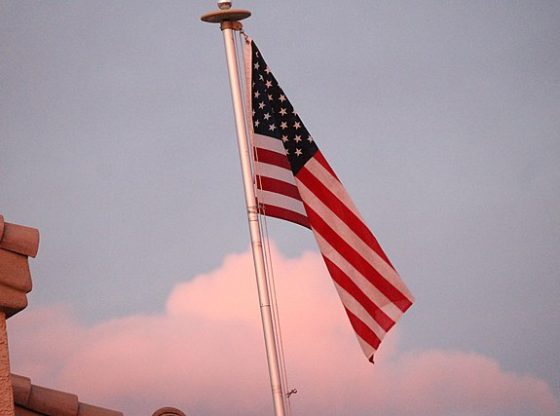Like many Americans, my Memorial Day weekend begins at the airport.
Out of the corner of my eye, I can see faces and cell phones pressed to the nearby airplane’s oval windows. A small crowd is also gathered above us in the terminal, looking on. My team of seven sailors, dressed in our summer whites, is waiting on the tarmac of Birmingham’s airport to receive the last remains of our shipmate.
We will carry him to the waiting hearse with all the dignity and precision that we can muster as an honor guard for the U.S. Navy.
In today’s America, the stillness and formality of this moment feels very much out of place with our casual and irreverent culture. I’m proud of my team, but I’m also heartened that busy travelers pause, take off their hats, and silently pay tribute to this sailor coming home.
As an officer in the U.S. Navy Reserve, I have buried 173 fellow service members. Some have died young, like Joshua Kaleb Watson, an ensign just out of Annapolis, shot by an Islamic terrorist in Pensacola. Others have been old men, like Hormer Kapula, a World War II vet who died at 101 years old.
I’ve buried sailors in the neat rows of Alabama’s National Cemetery, at crummy funeral homes with pink lighting and piped music, out in the country where mourners wear nothing more formal than a white button-down shirt, in old Gothic cathedrals with hard wooden pews, and in modern megachurches where the choir sports a drum set. Urban and rural, black and white, rich and poor, I have seen nearly every cross section of our military family.
For each, I take a knee before their next of kin, look into their eyes, and say: “On behalf of the president of the United States, the United States Navy, and a grateful nation, please accept this flag as a symbol of our gratitude for your [father, mother, brother, sister, daughter, son’s] loyal and faithful service.”
In that moment, our flag, Old Glory, becomes a last gift — most frequently from a husband to a wife or father to a son. Military bearing demands my face be composed and impassive, but oftentimes my heart breaks with them.
In a small breach of etiquette, if I see her struggling I will sometimes quietly pat or squeeze a widow’s hand before standing to render a last salute. Sons, brothers, and fathers are harder. They often try not to cry in front of me. I want to tell them it’s okay. Their grief is a good marker that my shipmate has been a strong, loving presence in their lives.
After serving as a part of so many honor guards, I have learned one can tell a great deal about a person by their funeral, who shows up, and how they react. The most common reaction is pride in their fallen loved ones, mixed with heartfelt gratitude for this nation.
It is not uncommon to see the next of kin hug the flag to their chest as if they are hugging one last goodbye.
Although I’ve always honored our nation’s ensign, the families of our fallen have taught me a love and reverence for our flag that is visceral. For me, the Stars and Stripes have become human, a fellow veteran worthy of salute.
So, amid this Memorial Day weekend of backyard barbecues and summer appliance sales, should you see the flag of the United States fluttering in the breeze, please pause for a moment and remember the ongoing sacrifices of our military and their families which make our country, our freedoms, and our very way of life possible.












